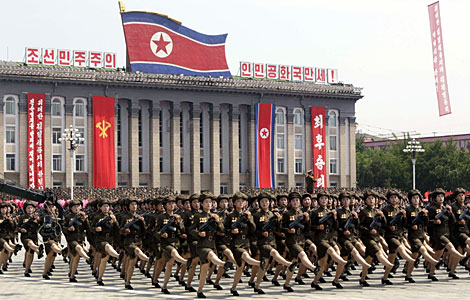Reform orders, labor market flexibility important
Updated: 2013-07-29 17:27
(Xinhua)
|
||||||||
NEW YORK - How to increase China's labor market flexibility and optimize the order of different reforms with the goal of financial stability and higher efficiency are two major issues the country needs to think of in its medium-term reforms, an expert said Sunday.
"What should be paid attention to is the meaning and relationship of five financial reforms, especially the optimal order of them, namely the reforms of banks' risk management, risk supervision of the regulatory system, market-oriented interest rates and exchange rates, opening of capital account and internationalization of the Chinese yuan," Wei Shangjin , professor of Finance and Economics at Columbia University, told Xinhua.
From the perspective of financial stability, the best order is to strengthen risk management and regulation ability first, followed by deepening market-oriented interest rates and exchange rates, and on that premise can other reforms be considered, he said on the sidelines of a forum.
The other issue that demands attention is a less flexible Chinese labor market now compared to a very flexible one in the past, Wei said.
If the labor market becomes relatively less flexible or even "stiff" like some European countries such as France or Italy, it may restrain China's growth, especially when facing negative impacts like a financial crisis, he added.
Talking about the newly-coined word of "Likonomics," which refers to Chinese Premier Li Keqiang's economic policies, Wei said it is just a fancy word created by some investment banks.
Premier Li's economic policies were interpreted by some investment banks as no stimulus, deleveraging and structural reform. However, Wei pointed out that the Chinese government has not yet fully disclosed its detailed economic strategies, goals or measures, thus the definition of the so-called "Likonomics" is just their guess.
- Economic restructuring key to China's reform
- China gets the reforms it needs
- Reform, not incentives, to drive expansion
- China's VAT reform to benefit more businesses
- Lending rates reform has 'no impact' on ratings
- China continues medical reform efforts
- A boost to financial reform
- Li points way for railways reform

 Asiana crash victims' ashes returned to relatives
Asiana crash victims' ashes returned to relatives
 7 killed in Florida shooting spree
7 killed in Florida shooting spree
 Sun Yang takes gold in 400m freestyle
Sun Yang takes gold in 400m freestyle
 Six dead, 12 missing in landslides, floods
Six dead, 12 missing in landslides, floods
 Complaints spike over subpar baby formula imports
Complaints spike over subpar baby formula imports
 EU solar trade dispute diffused
EU solar trade dispute diffused
 Deliveries up as mercury rises
Deliveries up as mercury rises
 DPRK stages military parade
DPRK stages military parade
Most Viewed
Editor's Picks

|

|

|

|

|

|
Today's Top News
Pakistan condemns latest US drone strike
Experts advise CEOs on how to make it in the US
Israeli-Palestinian peace talks to resume
Latest US-China talks should smooth the way
Audit targets local government debt
30 people killed in Italy coach accident
Brain drain may be world's worst
Industry cuts cloth to measure up to buyers' needs
US Weekly

|

|







